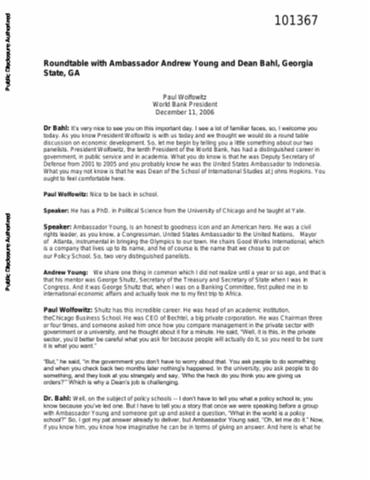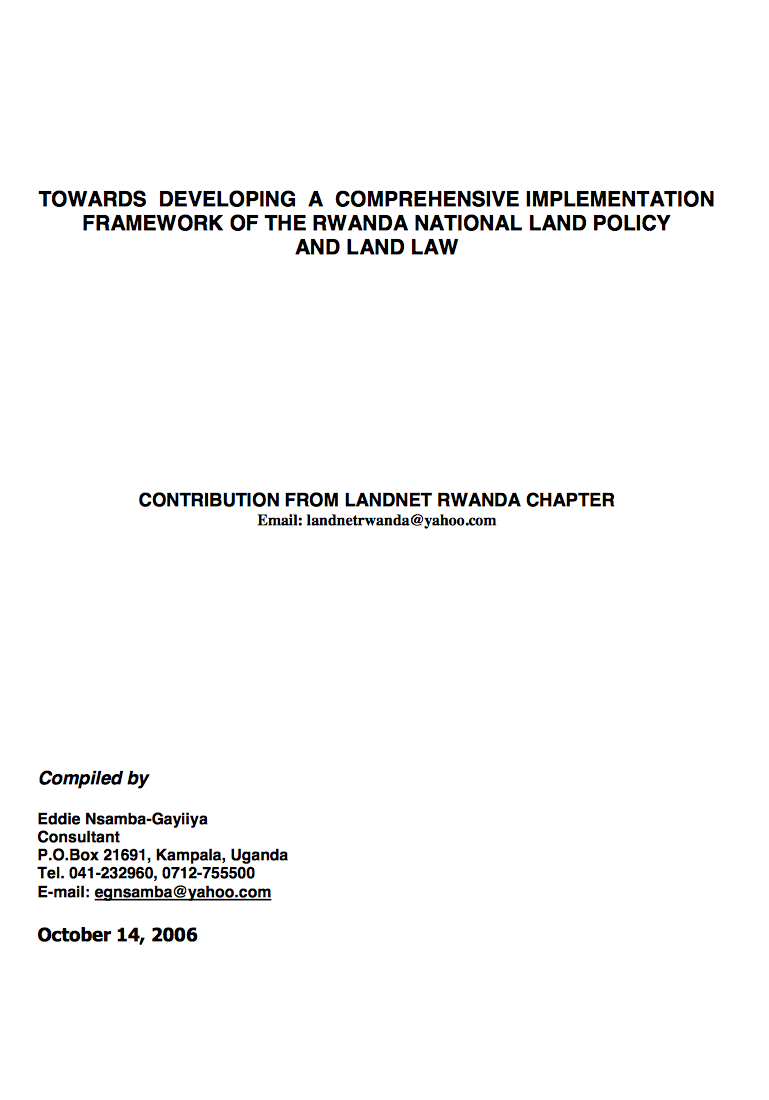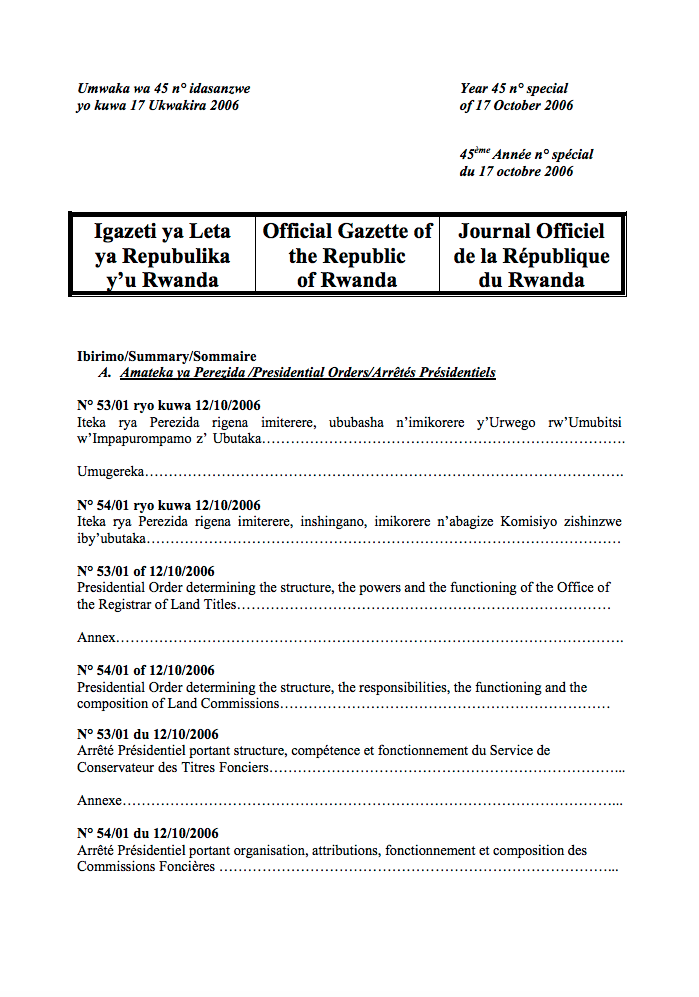Sustainable land use planning involves both policy- and farmer-oriented agricultural land use strategies. In this paper, a spatially and temporally explicit multi-scale decision support system that reveals the biophysical indicators affecting land use choices of these different stakeholders, is…
Paul Wolfowitz, President of the World Bank, and Ambassador Andrew Young engaged in a roundtable discussion on economic development, moderated by Dean Bahl of Georgia State. Wolfowitz has made Africa the first priority of the Bank. There is really a chance for Africa to turn the corner. It’s…
Most of the world’s poor work in the “informal economy” – outside of recognized and enforceable rules.
Thus, even though most have assets of some kind, they have no way to document their possessions
because they lack formal access to legally recognized tools such as deeds, contracts…
Meeting Name: Regional Conference for Africa (ARC) (22nd Session)
Meeting symbol/code: ARC 02 INF/7
The effect of prime-age adult death and its consequences on access to land for the survivors has not been fully explored nor incorporated into policy regardless the fact that high adult mortality is now the lived reality in countries affected by HIV/AIDS, particularly in Africa. This paper…
This paper focuses on legal and institutional aspects of children’s property and inheritance rights in Southern and East Africa. Chapter 2 discusses violations of children’s property and inheritance rights and discusses how the spread of HIV/AIDS has contributed to the violations. Chapter 3…
The present paper seeks to cover the key issues, trends, constraints, challenges, knowledge gaps and policy options on a range of dimensions of land access. Land access is broadly defined as the processes by which people individually or collectively gain rights and opportunities to occupy and…
Most of the world’s poor work in the “informal economy” – outside of recognized and enforceable rules. Thus, even though most have assets of some kind, they have no way to document their possessions because they lack formal access to legally recognized tools such as deeds, contracts and permits…
Most of the world’s poor work in the “informal economy” – outside of recognized and enforceable rules. Thus, even though most have assets of some kind, they have no way to document their possessions because they lack formal access to legally recognized tools such as deeds, contracts and permits…
Across rural Africa, land legislation struggles to be properly implemented, and most resource users gain access to land on the basis of local land tenure systems. Although such systems claim to draw their legitimacy from “tradition” and are commonly referred to as “customary” (and for easier…
Examines critical land issues and land related problems; the National Land Policy in the context of the national development agenda; global experiences and best practices in land reforms and implementing land policies, especially in post-conflict situations; implementation challenges; towards…
Presidential Order N° 53/01 of 12/10/ 2006 Determining Structure, Powers and Functioning of Office of the Registrar of Land Titles.
Published on the 17 October 2006.





